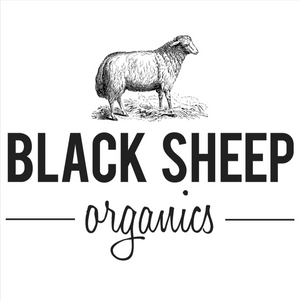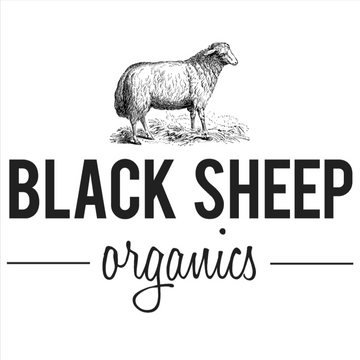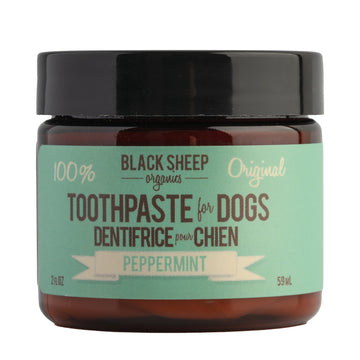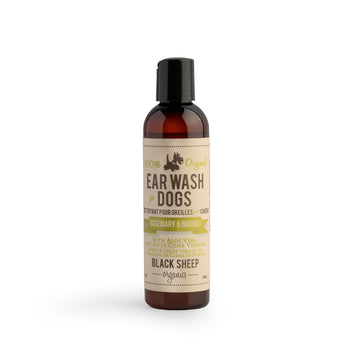How to Stop a Dog from Smelling Without Bathing?
Aug 26, 2024
Dealing with a smelly dog can be challenging when frequent baths aren't feasible. This article offers practical solutions to keep your pet smelling fresh between baths. You'll learn effective methods for managing odor, the safety of using deodorizer on dogs, and various sprays to improve their scent. Our guide includes grooming, diet, and hygiene tips for maintaining a pleasant-smelling dog without constant bathing. Read on for expert advice.
What Stops Dog Odor? Effective Methods and Tips
Keeping your dog smelling fresh without frequent baths requires a combination of effective grooming practices and maintaining a clean environment. Here are some practical tips for managing dog odor:
Regular Grooming and Brushing
One of the most effective ways to prevent dog odor is by brushing your dog frequently. Regular brushing helps remove dead hair and skin cells, which can contribute to bad smells. Aim to brush your dog at least a few times a week, focusing on areas where dirt and dander tend to accumulate.
Use of Dog Wipes and Deodorizer
Dog wipes and deodorizer are alternatives to traditional baths. Pet-friendly wet wipes can quickly clean your dog's coat, paws, and other areas between baths. Make sure to choose products specifically designed for dogs to avoid skin irritation.
Importance of Diet and Hydration
A healthy diet plays a crucial role in preventing dog odor. Feed your dog high-quality, balanced food to ensure they get the necessary nutrients. Proper hydration is also vital as it helps maintain healthy skin and coat. Always provide fresh water and consider supplements like omega-3 fatty acids to support skin health.
Cleaning Your Dog's Bedding and Living Area
Regularly cleaning your dog's bedding and living area can significantly reduce odor. Wash your dog's bed and blankets weekly using pet-safe detergents. Vacuum your home frequently to remove pet hair and dander, and consider using baking soda as a natural deodorizer for carpets and furniture.
Understanding the Risks and Benefits of Using Deodorizer on Dogs
Perfumes and colognes designed for humans often contain chemicals that can irritate a dog's sensitive skin and respiratory system. While these products might mask unpleasant odors temporarily, they can lead to allergic reactions or more serious health issues in dogs. So if you are looking to safely remove odor on your dog, go for pet-safe deodorizers specifically formulated to be gentle on a dog's skin and safe for their health.
Choosing Pet-Safe Deodorizers
When selecting a fragrance product for your dog, look for those specially designed for pet odor. Here are a few tips to consider:
- Read the Ingredients: Avoid products with alcohol, artificial colors, and strong synthetic fragrances.
- Opt for Natural Scents: Choose scents derived from natural sources, such as essential oils that are safe for dogs.
- Check for Certifications: Look for vet-approved products or those that have been tested for safety.
How to Properly Apply Deodorizer to Minimize Risk
Applying deodorizer to your dog requires careful attention to avoid any negative effects. Follow these steps to ensure it's done safely:
- Test a Small Area First: Before applying the deodorizer to your dog's entire body, spray a small amount on a patch of fur and wait 24 hours to check for any reactions.
- Apply Sparingly: Use the deodorizer sparingly, focusing on areas away from the face, eyes, and genitals. The back and neck are usually good spots.
- Monitor for Reactions: Keep an eye on your dog after applying the deodorizer. If you notice any signs of irritation or discomfort, wash the area immediately and discontinue use.
What Can I Spray on My Dog to Smell Good? Natural Products and DIY Solutions
Finding the right spray to keep your dog smelling pleasant without constant bathing can make a big difference. Let's look at some natural products and DIY solutions:
Natural Sprays and Essential Oils Safe for Dogs
Instead of using commercial products, if you prefer natural options, several essential oils can be safe and effective when used correctly. Some suitable essential oils include:
- Lavender: Renowned for its soothing qualities and delightful fragrance.
- Chamomile: Gentle and soothing, helps with minor skin irritations.
- Eucalyptus (in small amounts): Refreshing and can help repel insects.
When using essential oils, always dilute them properly with water or a carrier oil (like coconut oil). A good rule of thumb is to use one drop of essential oil for every ounce of water.
DIY Recipes for Making Your Own Dog Deodorizing Spray
Creating your own deodorizing spray at home can be economical and allows you to control the ingredients. Here are a few simple recipes:
Basic Deodorizing Spray
Ingredients:
- 1 cup distilled water
- 1 tablespoon baking soda
- 5 drops of lavender essential oil
Instructions:
- Combine all ingredients in a spray bottle.
- Shake well before each use.
- Lightly mist your dog's coat, avoiding the face and genitals.
- Brush through to distribute.
Apple Cider Vinegar Spray
Ingredients:
- 1 cup distilled water
- 1/4 cup apple cider vinegar
- 5 drops of chamomile essential oil
Instructions:
- Mix the ingredients in a spray bottle.
- Shake well before each application.
- Spray lightly onto your dog's fur and brush through.
Additional Tips for Using Sprays Safely
- Always perform a patch test before using any new product on your dog to check for allergic reactions.
- Avoid spraying directly on open wounds or broken skin.
- Store homemade sprays in a cool, dark place to maintain their effectiveness.
Additional Tips for Maintaining a Fresh-Smelling Dog
Keeping your dog smelling pleasant without frequent baths involves more than just surface-level grooming. Here are some additional essential tips to ensure your furry friend remains fresh and clean.
Regular Dental Care to Combat Bad Breath
Dental hygiene is crucial for preventing bad breath, which can contribute significantly to your dog's overall odor.
- Daily Brushing: Use a dog-specific toothbrush and toothpaste to brush your dog's teeth daily. This helps remove plaque and prevent tartar buildup.
- Dental Chews and Toys: Give your dog dental chews and toys specifically designed to clean their teeth and freshen their breath.
- Regular Vet Visits: Schedule regular veterinary check-ups for professional cleanings and to catch any dental issues early.
Maintaining a Clean Ear Hygiene Routine
Ears can harbor bacteria and yeast, leading to unpleasant smells. Keeping your dog's ears clean is key to preventing these issues.
- Weekly Inspections: Check your dog's ears weekly for redness, swelling, or unusual discharge.
- Gentle Cleaning: Use vet-approved ear cleaning solutions and cotton balls to clean the outer ear. Avoid inserting anything into the ear canal.
- Dry Thoroughly: Ensure ears are dry after cleaning to prevent infections.
Frequent Paw and Underbelly Cleaning
Paws and underbellies often come into contact with dirt, allergens, and other odor-causing substances. Regular cleaning helps maintain freshness.
- Wipe Paws After Walks: Use pet-safe wipes or a damp cloth to clean your dog's paws after outdoor activities.
- Remove Debris: Regularly check and remove any debris like pebbles or plant material stuck between the paw pads.
- Underbelly Wipes: Wipe down your dog's underbelly with a damp cloth, especially after walks in muddy or dusty environments.
Keeping your dog smelling fresh without frequent baths is achievable through regular grooming, proper dental care, maintaining clean ears, and diligent paw and underbelly cleaning. By using pet-safe deodorizing products and ensuring a healthy diet, you can effectively manage odors. Incorporate these tips into your routine to enjoy a pleasant-smelling companion without the hassle of constant bathing. Your dog—and your nose—will thank you.











